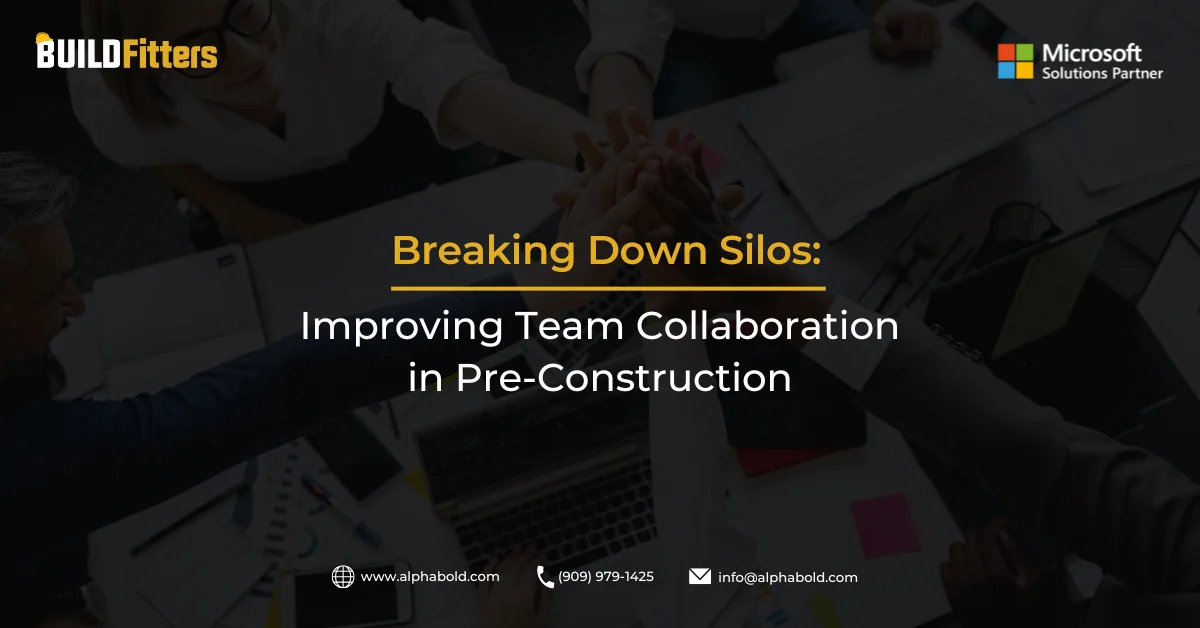
8 Construction Project Management Tips for Success
Key Takeaways in Construction Project Management
- Learning from Past Mistakes in Construction Project Management:
- Proactively identify and analyze common issues in construction project management processes.
- Utilize past project data, conduct thorough assessments, and engage in constructive discussions to pinpoint potential pitfalls.
- Incorporate construction scheduling tools for enhanced project scheduling and management efficiency.
- Enhancing Communication and Collaboration in Construction Projects:
- Acknowledge the importance of effective communication due to the involvement of various stakeholders in construction projects.
- Implement streamlined communication channels, maintain robust documentation, and utilize advanced project management tools.
- Cultivate a culture of collaboration and teamwork to boost project success.
- Embracing Technology and Digital Tools for Project Management:
- Leverage technological advancements for improved project scheduling and enhanced safety solutions.
- Implement cutting-edge construction management software, Building Information Modeling (BIM), and other digital tools for real-time data access, visualization, and communication.
- Prioritizing Project Scheduling and Resource Management:
- Focus on efficient scheduling by setting realistic timelines and allocating resources appropriately.
- Apply methodologies like Critical Path Method (CPM) or Agile to optimize project flow.
- Ensure effective resource management to maintain productivity and ensure the availability of equipment and materials.
- Consider the use of dedicated construction scheduling software for optimal resource planning.
- Implementing Risk Management Strategies in Construction:
- Make risk management a priority to effectively mitigate uncertainties in construction projects.
- Identify, assess, and develop comprehensive mitigation strategies for potential risks.
- Utilize construction project management tools for thorough risk analysis and tracking.
- Fostering a Culture of Continuous Improvement:
- Embrace continuous improvement by incorporating feedback, conducting evaluations, and learning from both successes and failures.
- Stay adaptable to changing market demands to maintain a competitive edge in construction project management.
- Real-Time Project Monitoring for Timely Decision Making:
- Adopt technology-driven project management tools for real-time monitoring of project progress.
- Track milestones diligently, identify bottlenecks early, and take corrective actions promptly to stay on track.
- In-Depth Understanding of Contracts in Construction Projects:
- Ensure a thorough understanding of the project contract before commencement.
- Fully comprehend key terms, conditions, and expectations to proactively address potential issues and avoid misunderstandings.
Introduction
In today’s hyper-augmented technology-first business climate, construction industry experts must upscale their businesses and strategies to keep up with the competition.
Construction project management has also become increasingly challenging in the industry due to the numerous complexities involved in project scheduling, execution, and completion. When coupled with the intensifying hyper-competition, this situation creates a recipe for heightened demands and the need for innovative solutions.
This detailed guide delves into crucial construction project management strategies, offering AEC professionals valuable insights and practical advice. These tips are designed to equip them with the necessary tools to overcome common challenges and understand the key elements of what makes a successful construction project.
8 Tips for Construction Project Management
Find Out What Goes Wrong in Construction Project Management:
One critical construction project management tip that often goes untold is that companies should learn from the past. The first step towards improving construction project management is identifying common issues and challenges often arising during the project lifecycle. Professionals can proactively address these issues and implement preventive measures by understanding what typically goes wrong, such as delays, cost overruns, or communication breakdowns. This could involve conducting thorough project assessments, analyzing past project data, engaging in open discussions with team members and stakeholders to gain insights into potential pitfalls, introducing better project scheduling methods such as construction scheduling tools, etc.
Foster Effective Communication and Collaboration:
A second critical construction project management tip that has proven helpful in the industry is effective communication. Communication is vital in construction project management, considering the stakeholders involved, including architects, engineers, contractors, and clients. Implementing streamlined communication channels, such as regular meetings, clear documentation, collaborative project management tools, and construction scheduling software, can help ensure that all team members are well-informed and aligned with project goals and milestones. Additionally, fostering a culture of collaboration and teamwork can enhance problem-solving capabilities and create a cohesive and efficient project environment.
Embrace Technology and Digital Tools:
The construction industry has witnessed significant technological advancements, offering innovative solutions to streamline construction processes such as managing project schedules, ensuring on-site safety, etc. Implementing construction management software, Building Information Modeling (BIM), and other digital tools can improve scheduling, resource management, and coordination. These technologies provide real-time data, enhance project visualization, and enable efficient communication, contributing to better decision-making and project outcomes.
Prioritize Project Scheduling and Resource Management:
An additional construction project management tip that can help industry professionals succeed is efficient resource management and scheduling. Effective scheduling is crucial for managing construction projects. It involves developing realistic project timelines, identifying critical paths, and allocating resources efficiently. Utilizing project management techniques like the Critical Path Method (CPM) or Agile methodologies can aid in managing project schedules and identifying potential bottlenecks. Additionally, resource management is vital for optimizing productivity and ensuring the availability of necessary equipment, materials, and skilled labor when and where they are needed. Many construction project management solutions come equipped with construction scheduling tools. However, if a company prefers to adopt separate construction scheduling tools, dedicated construction scheduling software is also readily available in the industry.
Maximize Your Project Success with Expert Insights
Gain valuable insights into enhancing your construction projects. Get in touch to explore our comprehensive solutions and take your projects to new heights.
Implement Risk Management Strategies:
One of the most critical construction project management tips is that managers should prioritize risk management. Construction projects are inherently exposed to risks and uncertainties that can significantly impact project scheduling, costing, and overall success. Implementing a robust risk management plan involves several key steps, including identifying potential risks, assessing their likelihood and impact, and developing mitigation strategies to minimize adverse effects. Regular monitoring, proactive risk mitigation, and contingency planning are essential to effective risk management in construction projects.
Construction project management tools, such as construction scheduling software, are crucial in mitigating risks as they provide valuable functionalities to support risk identification, analysis, and mitigation. These tools often offer risk tracking, real-time data analysis, and automated notifications, enabling project managers to address risks and make informed decisions proactively. By utilizing construction project management tools, managers can enhance their risk management efforts and improve the overall resilience of the project against potential setbacks and challenges.
For more info on why risk management is important, continue reading here.
Foster a Culture of Continuous Improvement:
To thrive in the dynamic construction industry, professionals should embrace a mindset of continuous improvement. Encouraging feedback loops, conducting post-project evaluations, and seeking opportunities to learn from successes and failures can drive innovation and enhance project management practices. By fostering a continuous learning and improvement culture, construction industry experts can adapt to changing market demands and stay ahead of the competition.
Real-time Project Monitoring:
An additional construction project management tip that has proven effective for AEC professionals is managing projects in real-time. Once again, using construction scheduling tools can be highly beneficial. To enhance construction scheduling, AEC professionals should utilize technology-driven project management tools that allow real-time project progress monitoring. These tools enable tracking project milestones, identifying bottlenecks, and promptly implementing corrective actions. Real-time monitoring empowers professionals to make data-driven decisions and ensure the project stays on track.
Know The Contract Inside Out:
When it comes to successful construction project management, one crucial aspect that should be noticed is clearly understanding the contract document. It is not enough to simply have the document in archives; a project manager should take time to read every clause in the contract. By familiarizing themselves with the contract from the beginning, project managers can proactively address any potential issues and ensure that both the customer and the contractor fulfill their obligations while adhering to the specified scope of work and project specifications. Before embarking on the project, project managers should take the time to read and comprehend the contract document thoroughly. This comprehensive review will enable them to grasp the key terms, conditions, and expectations outlined within the agreement. By doing so, they can effectively mitigate potential conflicts or disagreements during the project’s progression.
Unlock New Efficiencies in Your Construction Projects
See the difference our management tools can make. Sign up for a free trial and start optimizing your projects today.
Conclusion:
Throughout this comprehensive guide, we have explored essential construction project management tips designed to empower AEC professionals. By implementing these strategies, professionals can effectively navigate the intricacies of their projects and rise above the competition. From setting clear objectives and fostering collaboration to leveraging technology and analyzing lessons learned, each tip serves as a stepping-stone toward enhanced project success.
Staying ahead as the construction industry evolves requires adaptability, continuous learning, and a commitment to excellence. By embracing these principles and applying the best practices outlined in this guide, construction professionals can position themselves as industry leaders and thrive.
Read More:



